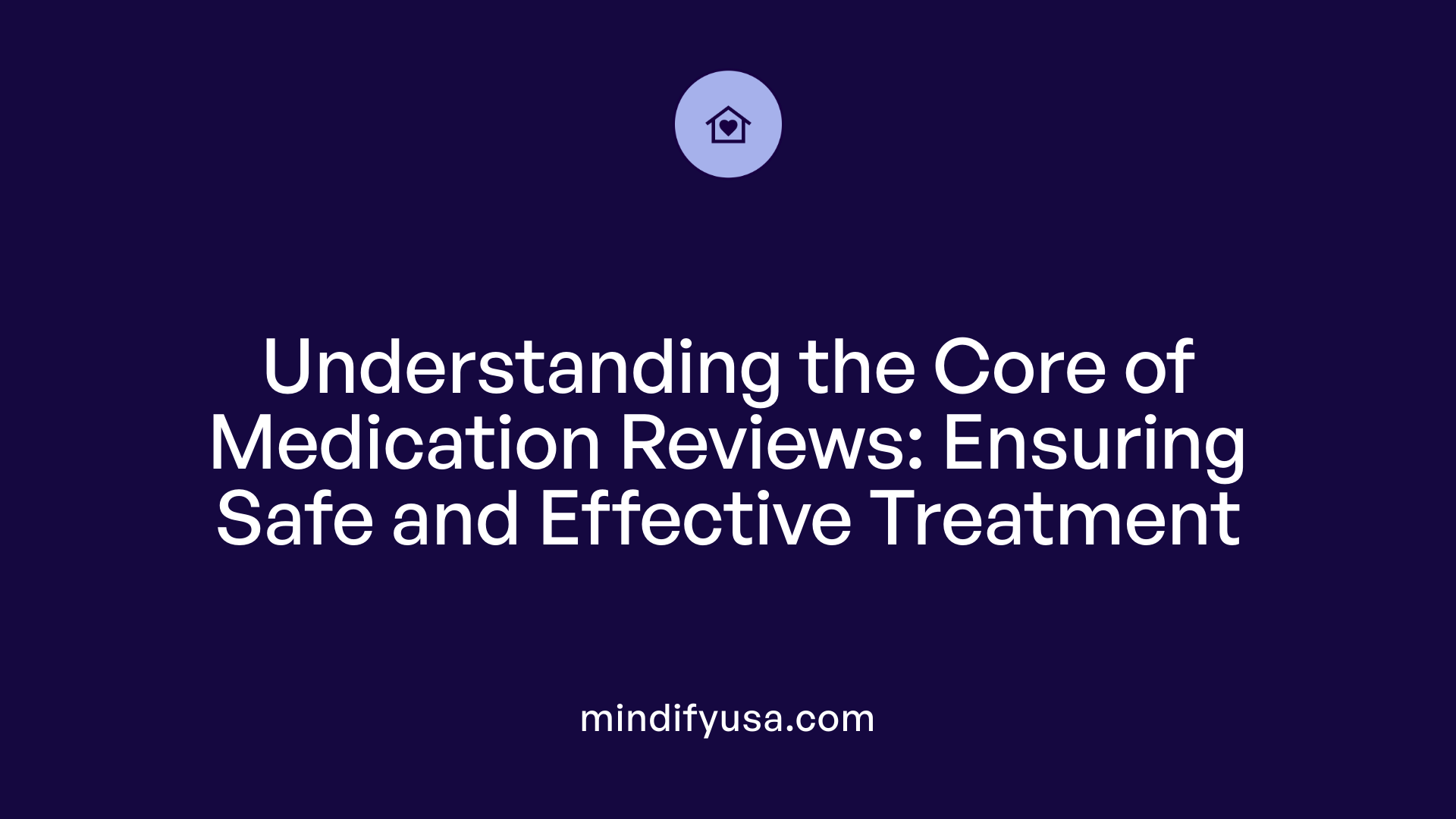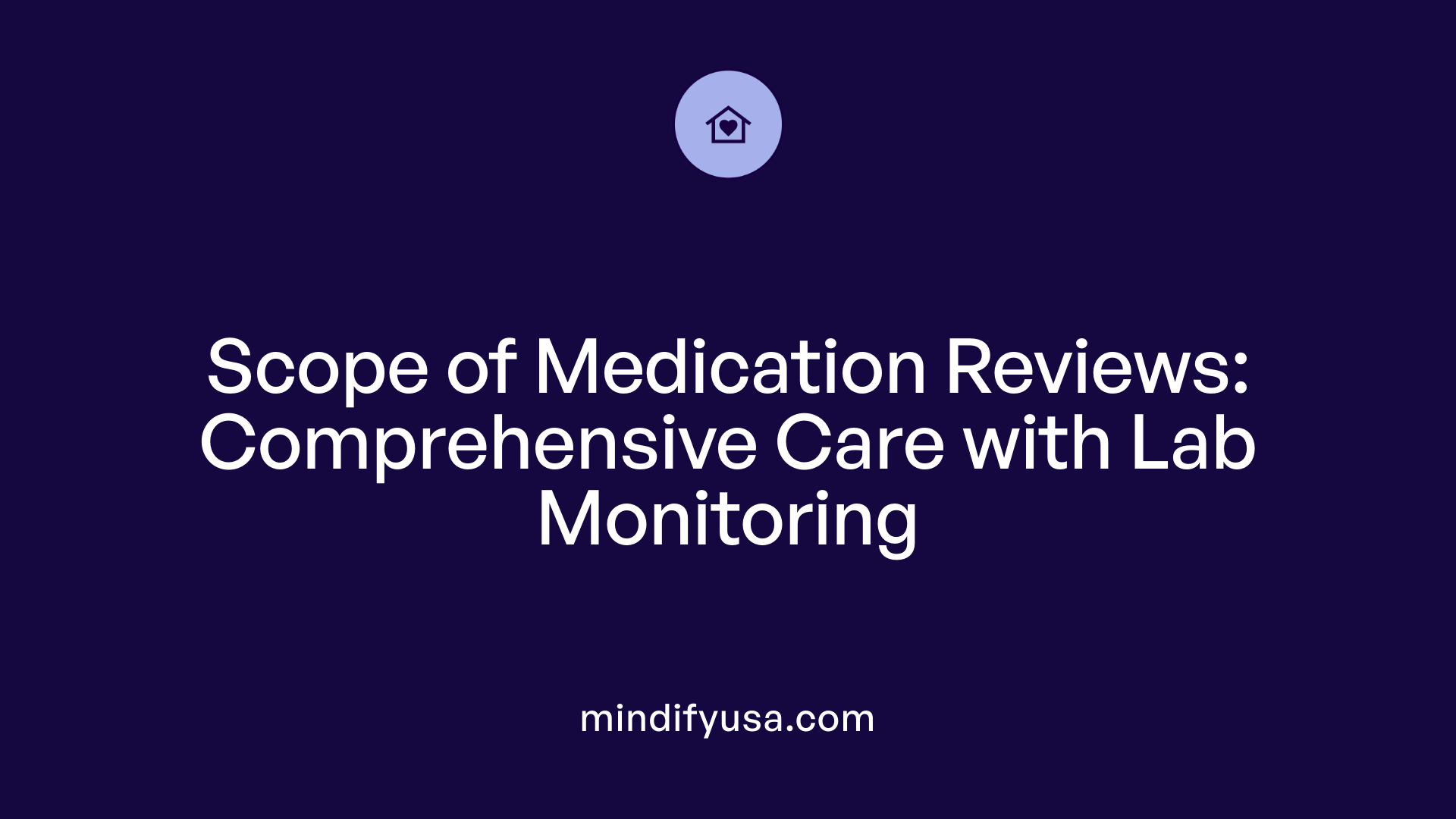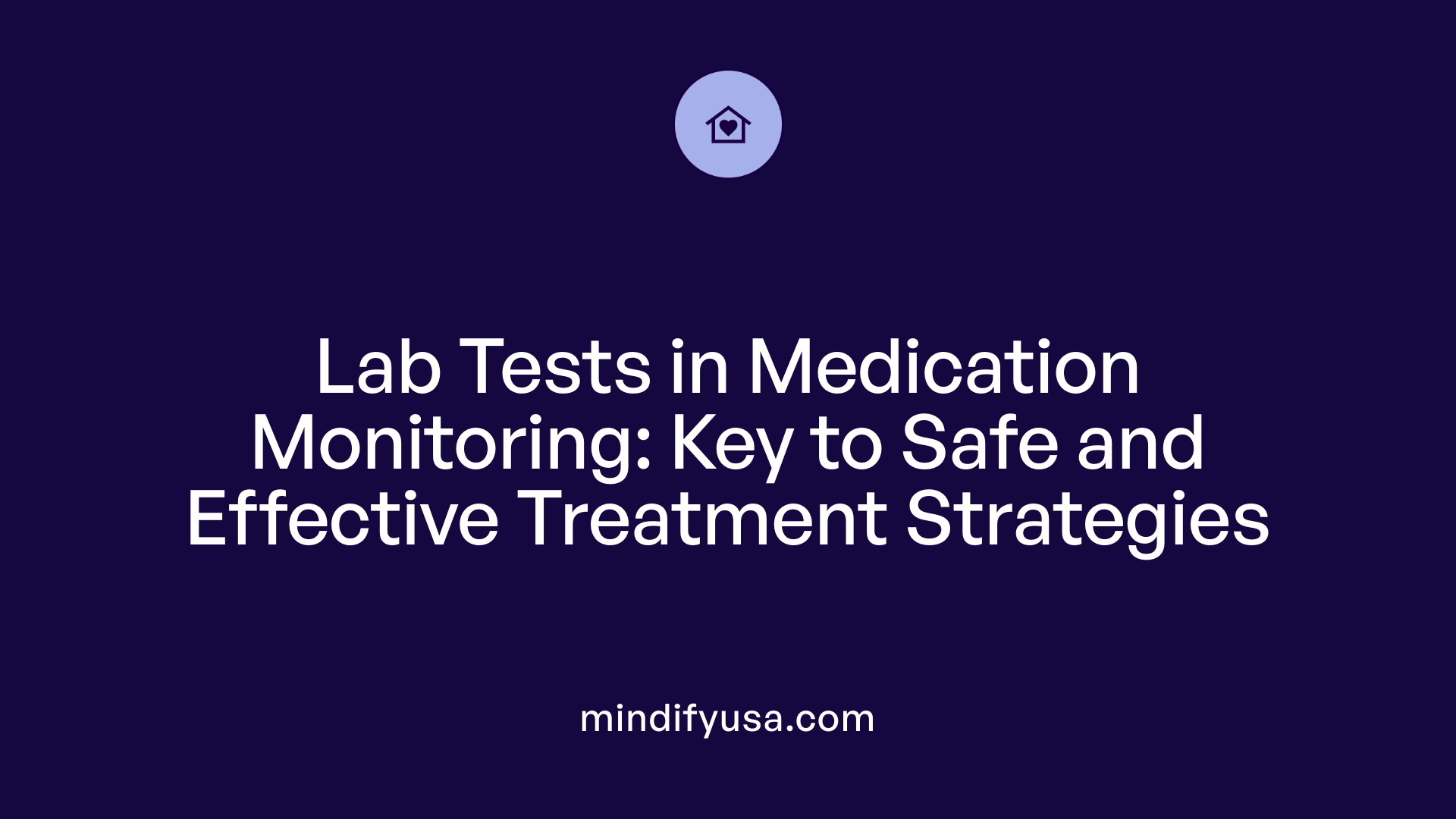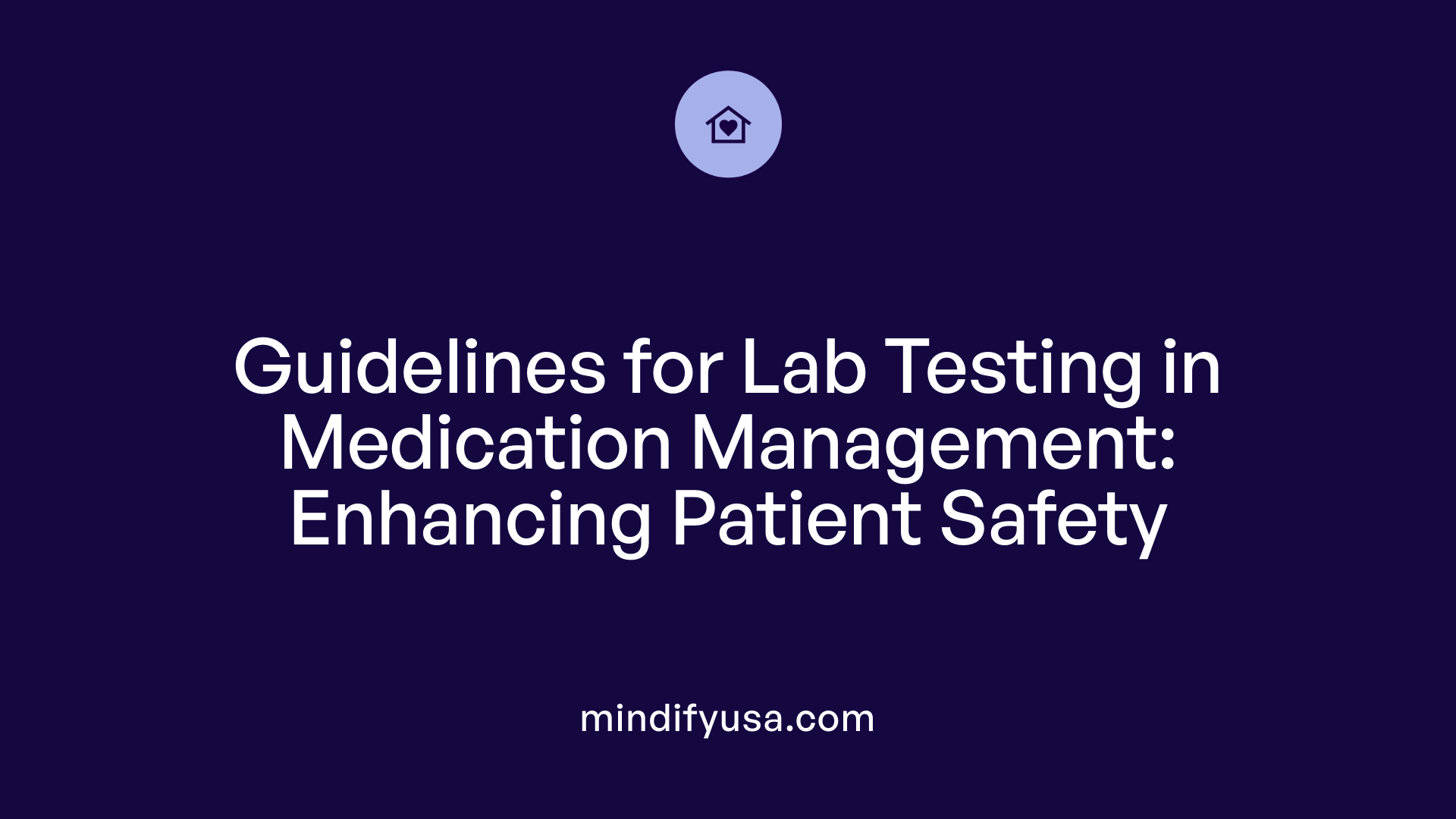Exploring the intersection of medication assessments and laboratory testing
Medications are vital for managing a wide range of health conditions, but ensuring they are working safely and effectively requires regular evaluation. A key question often arises: do medication reviews include laboratory tests? This article delves into the components of medication reviews, the involvement of lab tests, and their significance in optimizing patient care.
What is a medication review?

What is a medication review?
A medication review is a systematic process where healthcare professionals carefully examine a patient’s medications to ensure they are appropriate, effective, safe, and tolerate well. It involves reviewing all medicines that the patient is taking, including prescriptions, over-the-counter drugs, and herbal remedies. The goal is to optimize treatment outcomes, minimize medication-related problems, and enhance safety.
The process is patient-centered and considers the individual's views, concerns, and understanding of their medicines. It also involves assessing the need for monitoring tests such as blood tests or blood pressure checks, which can be scheduled depending on the medication and health status.
Professionals conducting these reviews can include pharmacists, doctors, nurses, or multidisciplinary teams, depending on local circumstances and patient needs. They may review medical notes remotely or conduct face-to-face or telephone consultations. These reviews are typically performed annually or every 3 to 6 months if the medication is complex.
Why are medication reviews important?
The main purpose of a medication review is to assess whether current medicines remain suitable for the patient, considering effectiveness, possible side effects, and safety. It helps check if necessary monitoring procedures are up-to-date, like blood tests or blood pressure measurements.
During the review, healthcare providers look for drug interactions, side effects, and the patient’s adherence to the medication plan. Any necessary changes are discussed with the patient to ensure treatments are as effective and safe as possible.
Who is involved?
Healthcare professionals involved in medication reviews include general practitioners, prescribing nurses, clinical pharmacists, and advanced nurse practitioners. They work with patients and, when appropriate, involve family members or carers.
These reviews can be part of routine ongoing care or prompted by specific health concerns, lab results, or medication changes. The process fosters shared decision-making, ensuring the patient understands and agrees with the treatment plan, which helps improve health outcomes.
| Stakeholders | Role | Typical Setting | Monitoring Methods |
|---|---|---|---|
| General Practitioners (GPs) | Conduct comprehensive reviews, discuss changes | Practice clinics | Blood pressure, blood tests, symptom assessments |
| Pharmacists | Review medication safety, provide advice | Practice-based or community pharmacies | Monitoring medication effects, drug interactions |
| Nurses | Measure health parameters, support medication management | Clinics, community settings | Blood pressure, blood sugar, weight |
| Patients & Carers | Provide feedback, concerns, and preferences | All settings | Participation in discussions, sharing symptom info |
In summary, medication reviews are vital for ensuring medicines continue to benefit the patient safely, adapting treatment plans as health conditions evolve, and preventing medication-related issues.
The process and scope of medication reviews

What is included in a medication review, and does it involve lab testing?
A medication review is a thorough consultation conducted by healthcare professionals such as pharmacists, doctors, or multidisciplinary teams. Its main goal is to critically examine all of a patient's medications—prescription drugs, over-the-counter medicines, and supplements—to ensure they remain appropriate, safe, and effective.
During the review, the professional discusses with the patient, or their family and carers, their concerns, questions, and experiences with their medicines. This includes understanding what each medication is for, how safe and effective it is for the patient, and whether it is being used correctly.
The review also considers potential interactions between medicines, side effects, and whether any monitoring or laboratory tests are required. Based on the patient's health and medication needs, the healthcare professional may suggest changes, such as stopping or adjusting medications.
Monitoring requirements like blood pressure, blood tests, or other assessments are evaluated during the review. Laboratory tests such as blood tests for kidney or liver function, blood sugar, or serum drug levels are often included, especially if they help determine treatment safety or efficacy. While not always mandatory, lab testing plays a vital role in complex cases or when ongoing monitoring is essential.
Thus, medication reviews serve as an important process to optimize medication use, safeguard patient health, and adapt treatment plans according to current health status and test results.
Lab testing as part of medication monitoring

Do medication reviews include laboratory tests or blood tests to monitor health?
A medication review may involve laboratory or blood tests if they are relevant to monitoring the safety and effectiveness of medications. These tests help healthcare professionals assess how well a medication is working and to identify any potential adverse effects.
Types of laboratory tests involved
Various tests can be part of the medication monitoring process. Common examples include liver function tests to check for liver health, renal function tests to assess kidney function, blood levels of specific drugs like lithium or warfarin, and other assays tailored to particular medications.
Situations warranting lab tests during review
Lab tests are usually ordered when there is a clinical indication, such as starting a new medication that requires monitoring or ongoing management of chronic conditions. For instance, patients on blood thinners, anticonvulsants, or medications affecting liver or kidney function often need periodic blood tests.
Examples of medications requiring lab monitoring
| Medication Class | Typical Monitoring Tests | Purpose |
|---|---|---|
| Warfarin | INR, bleeding profile | Manage blood clotting levels |
| Lithium | Lithium serum levels, kidney function | Prevent toxicity and monitor kidney health |
| Antiepileptics | Liver function, blood counts | Detect side effects, assess drug levels |
| ACE inhibitors | Serum creatinine, potassium | Prevent kidney damage, monitor electrolytes |
| Statins | Liver enzymes | Detect liver damage |
Impact of lab tests on medication adjustments
Results from lab tests can lead to various management decisions, such as adjusting medication doses, switching drugs, or stopping certain agents if adverse effects are detected. Regular testing helps ensure therapies remain safe and effective.
Integration into the review process
While not all medication reviews include lab testing, when indicated, these tests are crucial for comprehensive medication management. Proper scheduling and adherence to testing protocols can significantly reduce medication-related complications.
Additional monitoring parameters
Other than blood tests, reviews may include blood pressure checks, weight assessments, and reviewing recent test results, ensuring a holistic approach to patient care.
This integrated approach emphasizes the importance of lab testing in achieving optimal medication outcomes and safeguarding patient health during medication reviews.
Best practices and guidelines for lab testing during medication review

Do medication reviews typically include laboratory or blood tests?
Medication reviews often involve assessing the need for, safety, and effectiveness of a person's medications. Healthcare professionals frequently review laboratory or blood test results relevant to the patient's health condition and medication management. Tests such as kidney function, liver function, electrolyte levels, blood glucose, and serum drug levels are commonly incorporated, especially for vulnerable groups like older adults.
Including lab data in medication reviews helps improve the appropriateness of therapy, enables close monitoring, and aids in the early detection of potential adverse effects. While not every review involves lab testing, these assessments are crucial when it comes to monitoring medication safety, efficacy, and side effects.
Overall, thorough review of laboratory results is recognized as an essential part of comprehensive medication management, directly impacting patient safety and treatment quality.
Summing Up the Role of Lab Tests in Medication Reviews
In conclusion, laboratory tests play a crucial role in many medication reviews, especially when monitoring the safety and effectiveness of certain drugs. While not every review mandates lab testing, these procedures are integral when indicated, such as for medications requiring renal or liver function assessment, serum drug levels, or electrolyte monitoring. Healthcare professionals rely on lab results to make informed decisions, adjust dosages, and prevent adverse effects. Therefore, incorporating lab tests into the medication review process is vital for comprehensive patient care, ensuring medications are used optimally and safely over time.
References
- Medication review - Medicines Optimisation - NCBI Bookshelf
- Medication Reviews - Fulwell Medical Centre
- Medication Reviews - Eden Surgeries
- Medication Management Review - Godiva Group Practice
- Medication Review Policies - Battersea Fields Practice
- Medication Reviews - Meddygfa Emlyn - NHS Wales
- Medication Review Information for Patients
- Medication Review - Adelaide Medical Centre - London
- Medication review - Medicines Optimisation - NCBI Bookshelf
- What is a Medication Review & When Do I Need One - Vista Springs






































































































